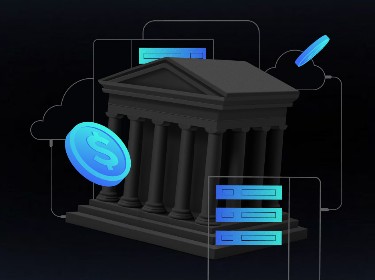The healthcare sector consistently adopts advanced tools and technologies in order to enhance its complex workflows and patient treatment. Among these, healthcare business intelligence stands out as a tool dedicated to serving these specific goals.
Business intelligence in healthcare is rising to prominence and is poised to exert a substantial influence on the industry’s numerous operations. This trend can be attributed to the multifaceted and impactful nature of business intelligence itself, which has recently gained wider traction in various domains.
On top of this, the healthcare business intelligence market size is expected to reach $25.86 billion by 2032. These statistics demonstrate that healthcare institutions and establishments recognize the enormous potential of BI and are eager to implement it into their workflows.
Read on to find out more about healthcare business intelligence, the specific challenges it helps to resolve, and discover where and how it can be applied.
What is healthcare business intelligence and why is it important?
Healthcare business intelligence involves applying data analysis tools and techniques in the healthcare sector to boost decision-making, operational efficiency, and patient care. The process involves the collection, processing, and analysis of healthcare data from multiple sources, such as electronic health records (EHRs), operational data from healthcare facilities, medical imaging, laboratory results, and patient surveys.
The key goal of integrating business intelligence in healthcare is to turn this extensive data into actionable insights. Gaining such understanding is important for healthcare providers, administrators, and policymakers, as it assists in enhancing patient care and streamlining the tasks of healthcare professionals.
What challenges does healthcare business intelligence solve?
Business intelligence helps the healthcare sector address its various challenges such as:
- Deciphering and addressing the complexity of patient needs in diverse healthcare settings
- Identifying and rectifying operational bottlenecks and issues within healthcare systems
- Navigating and adapting to the dynamic and ever-changing trends prevalent in the healthcare market
What’s more, the integration of business intelligence with advanced technologies like predictive analytics services and machine learning solutions enhances its effectiveness and creates a more powerful and sophisticated tool, substantially elevating the capabilities of healthcare business intelligence.
Take a look at how PixelPlex engineered this blockchain-powered mobile app for managing and tracking health data
What are the main benefits of healthcare business intelligence?
![]()
Healthcare business intelligence brings several benefits to the industry, including more informed decision-making, streamlined healthcare workflows, efficient cost management, improved patient care, and the facilitation of comprehensive research. This is why enterprise development services for the healthcare industry are increasingly focusing on integrating BI solutions into their core offerings, helping organizations harness the power of data for better outcomes.
Let’s take a closer look at each of these advantages of healthcare business intelligence.
More informed decision-making
Healthcare business intelligence equips healthcare professionals with timely access to vital data and insights, which empowers them to make data-driven decisions.
Such a comprehensive view of patient data, medical histories, and treatment outcomes enables healthcare providers to tailor their services to individual patient needs, ultimately elevating treatment quality of patient care strategies.
Streamlined healthcare workflows
BI tools in healthcare have the capability to optimize administrative processes and substantially reduce operational inefficiencies.
Thus, by automating routine tasks such as appointment scheduling and billing, healthcare organizations save time and minimize errors, which in the long run allows for smoother operations and reduced operational costs. Mobile development services for the healthcare industry are also leveraging BI, creating apps that provide real-time data to clinicians at the point of care, further streamlining workflows and improving efficiency.
Cost-efficiency management
Through the BI-enabled analysis of financial data, healthcare administrators are able to identify key cost drivers, track spending patterns, and implement relevant cost-saving measures.
As a result, with this data-driven financial planning, healthcare establishments can ensure better resource allocation and cut down on unnecessary expenditures.
Enhanced patient care
Another prominent benefit of using business intelligence in healthcare is that the technology empowers providers to continually monitor clinical outcomes, patient satisfaction levels, and adherence to best practices.
With these insights, healthcare organizations can initiate quality improvement initiatives, which will translate into better patient outcomes and higher levels of patient satisfaction.
More comprehensive research
Researchers can make use of healthcare business intelligence to uncover lots of valuable data that will help them spot trends, conduct clinical trials, and make advancements in healthcare treatments and technologies.
Thanks to this, it will be possible to speed up the pace of medical discoveries and contribute to the development of more robust healthcare solutions and drugs, which will benefit patients and the healthcare industry as a whole.
Check out our guide to the top 20 big data analytics in healthcare use cases
What are the top 10 healthcare business intelligence use cases and applications?
![]()
Healthcare business intelligence can be used in a wide range of contexts and directions. This has led to a growing demand for web development services for the healthcare industry, as organizations seek to build robust and user-friendly platforms to leverage their data effectively.
Below, we will take a look at the top 10 ways of how business intelligence in healthcare is changing the game.
1. Patient health outcomes monitoring
Coupled with advanced data visualization solutions and capabilities, healthcare business intelligence tools are instrumental in monitoring and analyzing patient health outcomes over time.
They focus on tracking various aspects such as recovery rates, the success of treatments, duration of hospital stays, and numerous other patient health aspects.
Thanks to this continuous monitoring, which is enriched by clear and insightful data visualizations, healthcare providers can substantially enhance patient care and boost the effectiveness of healthcare services.
2. Resource optimization and management
In this use case, the goal revolves around maximizing performance and helping staff deal with their time-consuming workflows.
So, healthcare BI facilitates the refinement of staff scheduling, reduction of patient wait times, and precise allocation of resources.
Thanks to this, hospitals and clinics acquire valuable insights into resource utilization and rectify instances of overuse or underuse for improved management.
Explore how our PixelPlex software development team delivered this high-performing appointment scheduling platform for health centers and their clients
3. Financial performance analysis
Healthcare business intelligence integrates and analyzes data from billing, electronic health records, and insurance claims to discern revenue trends and expense patterns.
This is where data analytics services for the healthcare industry can play a crucial role, providing advanced tools and expertise to extract meaningful insights from complex financial datasets.
Organizations thus gain insights into patient demographics, service cost-effectiveness, and revenue cycle management. Armed with this information, healthcare providers are then able to make strategic decisions about service pricing and financial management strategies to bolster profitability.
4. Market research and competitive analysis
In conducting market research and competitive analysis, healthcare organizations and private clinics utilize business intelligence platforms to explore patient demographics, regional health trends, and the service offerings of competitors.
The insights derived from this exploration assist healthcare providers in identifying growth opportunities, tailoring services to market demands, and setting themselves apart from competitors.
5. Patient readmission reduction
Business intelligence tools analyze data to uncover the reasons behind readmissions and pinpoint high-risk patients.
With this information at hand, hospitals can then initiate targeted interventions and enhance post-discharge care so as to decrease the likelihood of patients returning to the hospital.
6. Customized patient care planning
Healthcare business intelligence is indispensable in crafting personalized care plans tailored to individual patient data. It harnesses the distinct medical history, preferences, and specific health conditions of each patient.
The outcome of this tailored approach is enhanced patient engagement and elevated satisfaction levels.
7. Healthcare supply chain management and optimization
Leveraging cutting-edge technologies such as machine learning, artificial intelligence development services, and predictive analytics, healthcare business intelligence offers significant benefits in demand forecasting, inventory tracking, and procurement process optimization.
On top of this, it ensures the timely availability of critical supplies and optimizes inventory levels, thereby minimizing waste and reducing expenses.
Discover our supply chain & logistics software development services and expertise and see how we can help you deliver a flawless supply chain solution
8. Healthcare facility management
The proper management of healthcare facilities is essential for delivering high-quality patient care, and healthcare business intelligence provides valuable insights for facility optimization.
The technology can analyze data related to space utilization, equipment maintenance, and environmental conditions, thus ensuring that healthcare facilities operate at peak efficiency.
9. Telemedicine and remote care analysis
With the increasing importance of telemedicine technology and remote care, healthcare BI assumes an important role in assessing these services. It conducts an analysis of patient engagement levels, treatment effectiveness, and technology adoption rates.
The information gained allows healthcare providers to refine their telemedicine offerings, address technical challenges, and expand access to care, particularly for patients in remote or underserved areas.
10. Strategic planning support
Healthcare business intelligence offers invaluable insights for long-term strategic planning in the healthcare sector.
Once equipped with data-driven knowledge, healthcare organizations can make well-informed choices regarding facility expansions, service enhancements, and strategic partnerships. These insights enable them to stay competitive and agile in the ever-evolving healthcare landscape.
How to implement business intelligence in healthcare workflows?
![]()
Implementing business intelligence in healthcare workflows requires a systematic and strategic approach.
Here are the six steps to achieve this.
1. Assessment of healthcare organization’s needs and goals
The first step revolves around a thorough assessment of the specific needs and goals of the healthcare organization. This includes understanding the challenges faced in patient care, operational efficiency, and financial management.
Key stakeholders, such as clinicians, administrators, and staff, should collaborate closely to identify the areas where BI can make the most significant impact. This will help set clear objectives for the BI implementation such as improving patient outcomes, optimizing resource utilization, or enhancing financial performance. It also ensures that the BI strategy aligns with the overall mission and goals of the healthcare organization.
2. Selection of appropriate BI tools and technologies
Choosing the right BI tools and technologies is of utmost importance for successful implementation.
Healthcare organizations must evaluate various BI solutions, considering factors like data integration capabilities, user-friendliness, scalability, and compliance with healthcare standards. The selection process often involves comparing different vendors and products to find the best fit for the organization’s specific needs.
Engaging professional IT consultants and end-users in the selection process will ensure that the chosen healthcare business intelligence platform meets technical requirements and is user-friendly for healthcare professionals.
3. Data integration, management, and security
This phase is essential for the effective functioning of the healthcare system and involves several key actions:
- Integrating data from healthcare systems, such as EHRs, lab systems, and financial systems, guarantees data accuracy and consistency.
- Simultaneously, data management establishes protocols for data collection, storage, and access, promoting organized data for informed healthcare decisions.
- Above all, robust security measures, encompassing audits, access controls, and encryption, safeguard patient data against breaches.
4. Customization and configuration
Once a BI tool has been selected, the next step is to customize and configure it to meet the specific needs of the healthcare organization. The process encompasses setting up dashboards, reports, and analytics features tailored to the healthcare workflows and objectives identified in the initial assessment.
Customization also includes ensuring that the BI system integrates seamlessly with existing healthcare systems and workflows. Thus, this step may require working closely with the BI vendor or a consultant to configure the system properly.
5. Training and support for end-users
To ensure the successful implementation of a healthcare business intelligence system, it is important to focus on training healthcare staff and end-users, which involves delivering comprehensive training sessions, providing user manuals, and continuously offering support.
The primary objective is to familiarize users with the BI tools and empower them to proficiently utilize these platforms for certain tasks such as accessing, analyzing, and interpreting data, as well as effectively using the system for decision-making within their specific roles.
6. Ongoing monitoring, evaluation, and optimization
After the integration of business intelligence in healthcare, continuous monitoring and evaluation become essential to ensure the robustness and compliance of BI with the initial objectives.
The emphasis should be on the routine assessment of the system’s influence on patient outcomes, workflow efficiency, and financial performance. At the same time, gathering feedback from end-users assists in identifying areas for enhancement and required adjustments.
On top of this, the BI system’s adaptability to evolving healthcare needs and technological advancements is also essential. Therefore, regular updates and optimizations, informed by user feedback and performance metrics, maintain the BI system’s relevance and ongoing value to the healthcare organization.
Explore our professional healthcare software development services and see how we can help you craft custom software for any missions that you pursue
What does the future of healthcare business intelligence look like?
In the coming years, healthcare business intelligence is expected to witness a more profound integration of big data consulting services, empowering healthcare providers to make informed, data-driven decisions. Beyond this, the introduction and advancement of new predictive modeling techniques will facilitate early disease detection and prevention.
The focus on interoperability and effortless data sharing across healthcare systems will elevate the continuity of care and improve patient outcomes. Beyond this, personalized medicine will gain prominence, with business intelligence tools being essential in customizing treatments based on individual patient profiles, incorporating genetic, environmental, and lifestyle data.
What’s more, the growing adoption of value-based care will drive extensive utilization of healthcare business intelligence to measure and enhance healthcare quality and cost-effectiveness.
Based on these insights, it can be concluded that in the midst of mounting healthcare challenges, BI will remain a vital tool for navigating complexity and fostering innovation in patient care.
How PixelPlex can help
If you are looking to harness the full potential of healthcare BI, our specialized business intelligence company is here to assist you.
At PixelPlex, we provide a comprehensive range of services, including BI consulting, development, implementation, customization, and integration. We also deliver data analytics services, helping you quickly gain actionable insights. Our expertise ensures that healthcare organizations can effectively utilize BI to enhance both patient care and operational efficiency.
By partnering with PixelPlex, you gain a reliable ally in navigating the complexities of healthcare BI, driving innovation, and ultimately improving patient outcomes.




